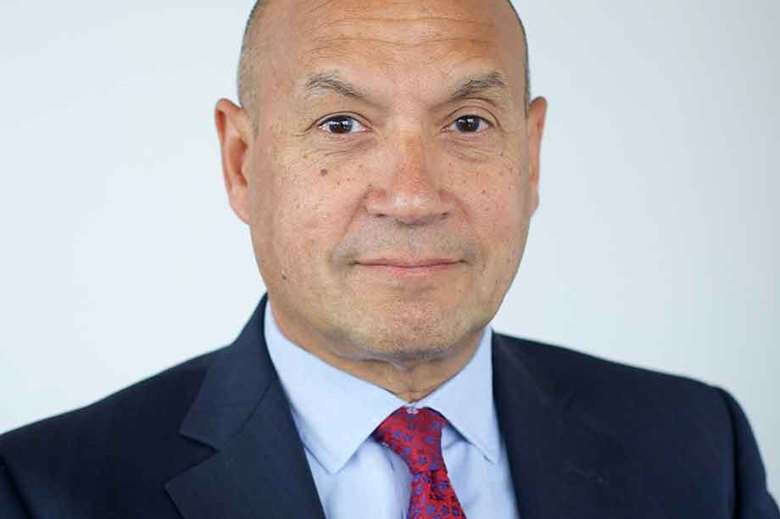Don't ignore the warning signs on 30 hours
Neil Leitch, chief executive, Pre-school Learning Alliance
Friday, July 21, 2017
The 30-hours scheme is heading for failure if problems raised in the pilot evaluation are glossed over instead of tackled, argues Neil Leitch

It’s been a difficult time for the government. With only a few weeks to go until the national roll-out of the 30-hours offer, the flagship policy has been plagued with problem after problem: from well-publicised IT glitches, to complaints over confusing delivery rules, to council warnings of low provider engagement with the offer.
So it must have come as quite a relief when the official evaluation of the 30-hours pilot scheme was published, given it concluded that there is 'no specific reason' that the policy won’t succeed and that there was 'no evidence' that financial implications were a substantial barrier to provider delivery. Could it be that all the sector’s concerns had been unfounded?
In a word: no. Because, upon reading through the full 200 pages of the evaluation report, it soon becomes clear that the pilot actually highlighted a number of potential problems with the scheme, problems that the sector has long warned about.
It’s true that the trial demonstrated the positives of 30 hours for parents (such as more disposable income and greater flexibility in work choices) – but then, I think we all could have guessed that, generally-speaking, parents would find having more 'free' childcare a bonus. So what about providers?
It’s important to be clear that while the report found no evidence that financial implications were a substantial barrier to delivery, this is not the same as saying there were no negative financial implications of offering the 30 hours. All it shows is that providers took the hit and delivered places anyway.
In fact, what the evaluation actually found was that the providers in the trial tended to see 'higher delivery costs and lower profits': around a third of providers that took part in the trial saw their costs increase, while four in 10 saw their profits decrease. Providers who feel they have no choice but to opt into the 30-hour offer may be able to absorb such financial impacts in the short term, but does anyone seriously think this is viable in the long term?
Given this general rise in costs and fall in profits, it’s no surprise that the evaluation reports a rise in providers increasing fees and additional charges during the trial. And it’s notable that this was most common in York, the only pilot area that rolled out the scheme universally – a fact that the report argues could indicate that 'the introduction of, or increases in, charges could be more widespread in the national rollout than in the early implementation'.
How will those accessing the scheme react? Unsurprisingly, the evaluation notes that a number of parents in the trial 'resented the fact that they were paying for what they believed should have been "free hours"'. Whether or not those parents recognised that this was a result of a lack of adequate funding, and not provider greed, is another matter.
And of course, it’s important to remember that the pilot scheme was carried out in far more favourable conditions than will be the case for the national roll-out. As the evaluation highlights, the funding rates used in the pilot aren’t even the same rates that will be used when the scheme roll outs in full. How on earth, then, can any conclusions be drawn on how offering the 30-hours will impact providers financially? To do so is at best misguided, and at worst, deliberately misleading.
The report goes on to list a whole range of ways that the pilot scheme will differ from national roll-out. It highlights that the councils that participated in the scheme had a 'track record on innovation and delivery of sufficiency and meeting other objectives' and so may do better at implementing the 30 hours than will be the case nationwide.
It reminds us that the early innovator funding that these councils received – which was often used to prop up delivery 'rather than testing innovative approaches to support 30 hours free childcare', and was 'critical' to ensuring local authorities had sufficient staffing resources – won’t be available when the scheme rolls out in full.
It notes that pilot was carried out at the quietest time of the year, when providers have the most spare capacity.
It points out that the Childcare Service IT system wasn’t tested in the trial, and warns that the successful implementation of this system is vital if the 30-hours is to 'operate successfully at all'.
It warns that the trial was a 'very limited test of sufficiency' because seven of the eight pilot schemes only provided a few hundred places, with some providers only delivering a single 30-hours place as part of the pilot. Add to this the fact that nearly four in 10 pilot providers warned that they didn’t have the capacity to provide further 30-hours places, and it’s clear that sufficiency is going to be a real problem when the scheme rolls out nationally.
Given all this, I can’t be the only one wondering if this evaluation is worth the paper it’s written on. We at the Alliance warned when the pilot was first announced that it would be an exercise in futility if the trial conditions were completely different from how the offer will work when rolled out in full. Are we really supposed to feel reassured that the national scheme will succeed without issue when, compared to the pilot, there will be less funding for providers, less money for councils, a far higher demand for places and a barely-tested, glitch-ridden IT system underpinning it all?
To use this report to argue that all is well with the 30-hour offer is insulting to a sector of providers that have very valid concerns about how this policy will impact their sustainability. Let’s be clear: to point out potential problems with the 30-hour offer is not being unnecessarily negative, or 'glass half empty' as was recently suggested by the government.
Rather, it’s the only way that the scheme is going to have a hope of succeeding in the long term. Because there’s no point in pretending that funding rates are fine, only to watch setting after setting opt out of the scheme, or far worse, close their doors because they just can’t make the numbers work. There’s no point in saying that there will be plenty of 30-hours places in September, if all the signs are that this will not be the case. Having honest discussions about the significant problems the policy faces is the only way those problems ever going to get solved.
The whole point of the early implementer trial was to shine a light on the 30-hour scheme’s problem areas so that they could be addressed ahead of national roll-out. And even with the favourable conditions it was conducted under, the pilot still revealed a whole host of potential issues. If the government chooses to ignore these warnings and insist that everything is fine, rather than tackle them head on, then frankly, the whole endeavour will have been a complete waste of time.
- See Nursery World out on 24 July for analysis of 'Evaluation of Early Implementation of 30 Hours Free Childcare' and a comment piece from new shadow early years minister Tracy Brabin MP.






